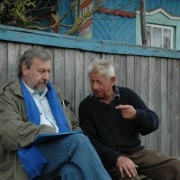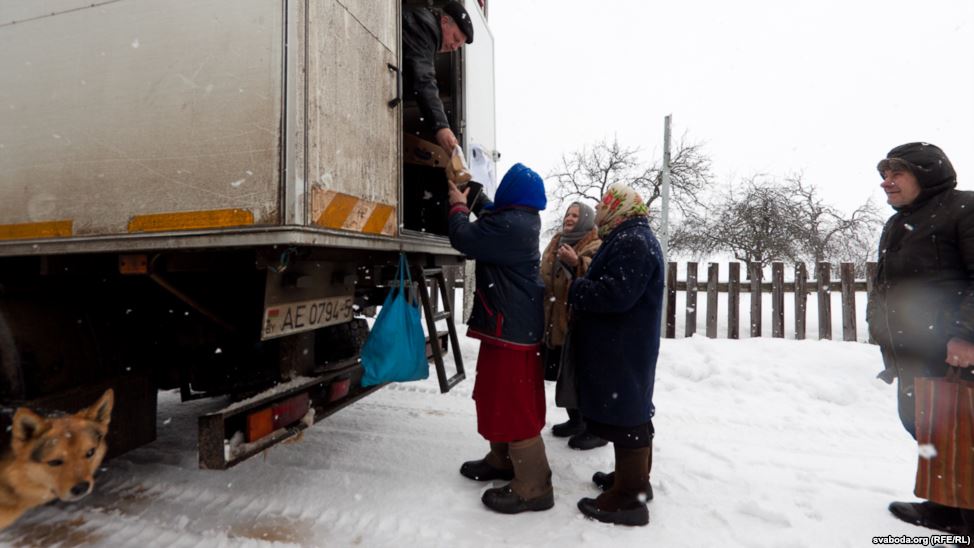The Orthodox Church Says “No” To Death Penalty – Belarus Press Review

Will a new presidential decree impose the ideological control on performers in Belarus? The Belarusian Orthodox Church gives a loud "no" to capital punishment. Who can improve the problematic relations with Ukraine? Over the last two weeks Belarusian press covered a wide range of topics.
The head of the Belarusian Orthodox Church says "no" to capital punishment. Business-oriented Belarusy i Rynok weekly reports that the head of the Belarusian Orthodox Christians Filaret spoke out against the death penalty during a round table that recently took place. Apart from the Orthodox Church, the representatives of the Roman Catholic Church, legislative and judiciary authorities, delegates from the Council of Europe, diplomats and human right activists participated in the event.
As the newspaper reports his words "We, Christians, cannot legitimise capital punishment since this is the sin of murder (…) We, sinful people, are not to grant life to a person, neither we should decide about a person's existence."
The newspaper notes also that before the Orthodox Church remained "heard less" than the Catholic Church when it came to public discussions of death penalty in Belarus. In 2011, aftermath the death sentence of Vladislav Kovalev and Dmitrii Konovalov, the head of Belarusian Roman Catholics, Tadeusz Kondrusievich, appealed for a moratorium for the convicted for the explosion in the Minsk metro. The newspaper noted that the top cleric of the Russian Orthodox Church (to which Belarusian Orthodox Church belongs), patriarch Kirill spoke out against capital punishment, other than in certain situations, for example against terrorists.
Ideological control of performers? Daily Narodnaja Volia comments upon the newest decree of Alexander Lukashenka on cultural events. According to the new law, organisers of any cultural event will need to apply for a special permission from the Department of Ideology, Culture and Youth Affairs in advance. Foreign performers will have to make a payment to a special presidential fund supporting talented youth.
Belarus-Vatican relations. The state-run daily Sovetskaya Belarusiya reports on a meeting between Alexander Lukashenka with the Apostolic Nuncio, Claudio Geggerotti. As the newspaper notes, both countries are conducting a "constructive dialogue" and their relations remain warm. In Lukashenka's words, "I am thankful for the Catholic Church and Vatican for its support … on the international arena. Primarily, in the establishment of a dialogue with the European Union". The newspaper reports that he made an open invitation for a Papal visit to Belarus.
Makei can travel to the European Union. Komsomolskaya Pravda comments upon recent lifting of visa restrictions from Belarus Minister of Foreign Affairs, Uladzimir Makei. The Belarusian official had remained on the EU "black list" since the 2010 presidential elections when he headed Lukashenka’s administration. According to the newspaper, the visa restrictions against a representative of the foreign ministry was "diplomatic nonsense". In its words "firstly, a Ministry of Foreign Affairs was lead by a diplomat who could not obtain a Schengen visa, and as a consequence, he could not meet with his colleagues". Now Makei will be able to participate in the direct meetings of the Council of the EU which will simplify diplomatic relations between EU and Belarus.
According to an expert quoted by Komsomolskaya Pravda, the recent decision of Brussels means that the EU has started to talk in public to the Belarusian authorities. Lifting the travel restrictions on the minister of foreign affairs will allow him to participate not only in the autumn summit of Eastern Partnership in Vilnius, but also in other meetings.
Forbidden flag as national heritage. Daily Nasha Niva informs that BMAgroup, Art Siadziba and Rock-Salidarnasc started collecting signatures for a petition to the Ministry of Culture. The activists want the white-red-white flag to be on the list of symbols of historical-cultural heritage. The newspaper stated that the action takes place within another action that aims at the popularisation of the national symbols of Belarus, white-red-white flag and emblem of "Pahonia". The results of the campaign will be known 27 July.
Bitter-sweet Belarus-Ukraine wars. Belorusskaya Delovaya Gazeta writes about an ongoing crisis in the relations between two countries. It started in the beginning of April when the Belarusian customs did not allow the Ukrainians to transport confectionery goods through the territory of Belarus. The newspaper writes that Ukrainian exports to Belarus confectionery for $60m per year and remains the fourth largest market for the Ukrainian sweets that is more over 5 per cent of total exports in 2012.
The newspaper goes further to share that politicians have already discussed the confectionery issue at the inter-governmental level. Recent tensions may indicate, however, deeper problems that "should not be postponed to the future". Economic relations between Belarus and Ukraine have been mostly positive for both countries, but the trade wars in the sphere of oil and confectionery broke out and have soiled relations.
The World Congress of Russian Press. Nasha Niva reports how Alexander Lukashenka has opened the World Congress of Russian Press. As the newspaper put it, "the foundations of Belarusian statehood and that what is used to be called as the Belarusian model of development, are laid in the particular spiritual values and cultural progress which the Russian civilisation, the Russian world has given". Lukashenka highlighted also the role of Russian language for Belarus, as well as for Ukraine.




 Rural exodus from 1959 till now
Rural exodus from 1959 till now

